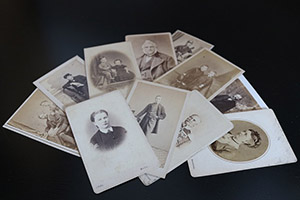The online indexes usually show the year when the birth, death or marriage was REGISTERED. This does not necessarily mean it is the year of the actual event.
 In some cases, BDM registrations were delayed, especially in country areas where the registrations were sent to the registrars office in bulk. Also, events that occurred in December were often not recorded until January which may create some confusion.
In some cases, BDM registrations were delayed, especially in country areas where the registrations were sent to the registrars office in bulk. Also, events that occurred in December were often not recorded until January which may create some confusion.
SOME TIPS FOR GENEALOGICAL SEARCHING OF BDM
- When searching the online indexes, always search either side of the assumed year or put in a 2 to 3 year range.
- Some state registrars (such as Victoria and New South Wales) only show the year of the registration, not the actual event date or registration date. However, they often sequentially numbered the records starting afresh each year. In this case it is possible to determine roughly what part of the year the birth, death or marriage took place. Lower numbers usually indicate it was early in the year and higher numbers indicate late. Example: a registration number of 13167/1886 = year of registration 1886. Sequence number is 13167 indicates that it was mid to late in the year.
- Look for revisions. If at some point an error was detected in the record, such as an incorrect spelling of a name, the original record was rarely changed. Instead, a new record was created using the same registration number and showing the corrected information. To distinguish, the index may show an "r" after the number for the revised entry.
- Many institutions such as asylums, hospitals, prisons and orphanages did not send birth and death records to the registrar. Instead the event was recorded in the records of the institution, particularly in the case of death. In such cases it is common to find unmarked gravesites on or near the grounds of the institution.
- Events that occurred at sea were usually recorded at the intended port of destination.
- Not all death records will show the age of the individual as the birth year was sometimes unknown.
- If certainty is required, it is best to purchase a copy of the original certificate.
Also watch for surnames that have been written phonetically, as often happened if the person did not speak English or if they were not literate. For example, it is common to find the Welsh surname of Davies recorded as its pronounced version of Davis, or the English surname of Symthe recorded as Smith, and so on. If you are having trouble finding the record, test as many variations as possible.
